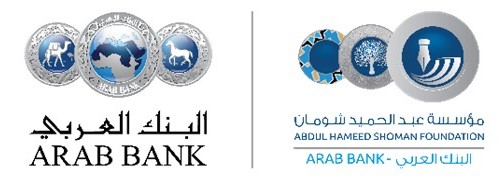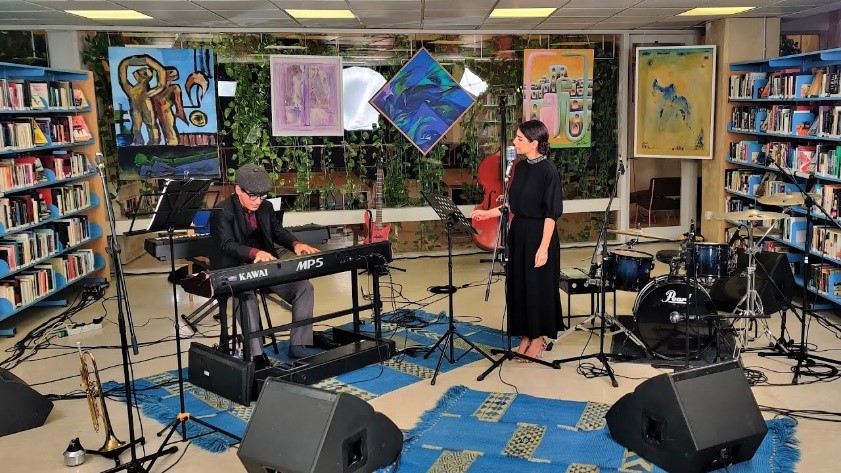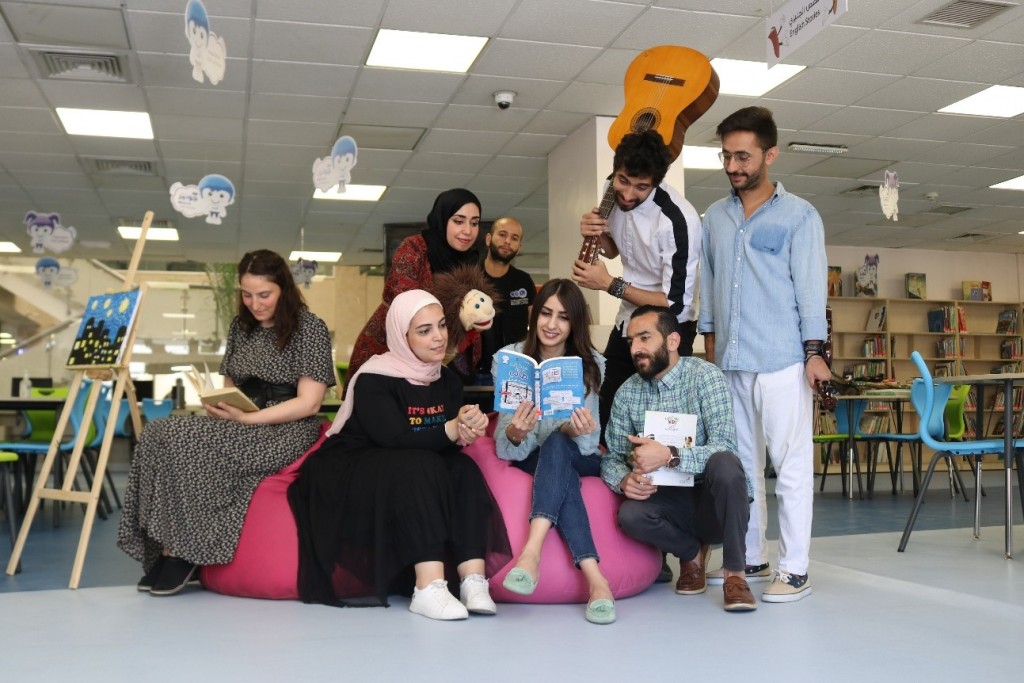Community outreach for cultural inclusiveness: going beyond the physical walls of Abdul Hameed Shoman Foundation’s Public Library
20 August 2021

Emanating from the belief that culture is a necessity rather than a luxury, the Abdul Hameed Shoman Foundation was established by Arab Bank in 1978 as a pioneering non-profit initiative to support cultural and social responsibility initiatives in the Arab World. The Foundation aims to serve as a beacon of light in Jordan and the Arab World by laying the groundwork for a society that nurtures reading, caters to scientific research and innovation, and promotes cultural enlightenment.
 Founded in 1986 as the first computerised and fully equipped public library in Jordan, the Abdul Hameed Shoman Public Library contributes significantly to the achievement of the Foundation’s goals. For the past 35 years, AHSF has been continuously working on developing an operating model for public libraries to serve as active learning centers that offer accessible and diverse resources, as well as services and opportunities for self-development for all. In 2013, the Foundation relaunched the Knowledge Path Children’s Library (KP) to cater for Children and Youth. The Knowledge Path Library provides a free and lively space for children of all ages and backgrounds to meet, connect, and learn through interactive reading and inspiring activities that promote creative thinking.
Founded in 1986 as the first computerised and fully equipped public library in Jordan, the Abdul Hameed Shoman Public Library contributes significantly to the achievement of the Foundation’s goals. For the past 35 years, AHSF has been continuously working on developing an operating model for public libraries to serve as active learning centers that offer accessible and diverse resources, as well as services and opportunities for self-development for all. In 2013, the Foundation relaunched the Knowledge Path Children’s Library (KP) to cater for Children and Youth. The Knowledge Path Library provides a free and lively space for children of all ages and backgrounds to meet, connect, and learn through interactive reading and inspiring activities that promote creative thinking.
To further optimize the model, the public library and KP were incorporated into a 360° scheme of AHSF programs to ensure the achievement of AHSF’s desired impact on its beneficiaries. However, social and economic inequalities remain among Jordan’s biggest challenges to date. Thus, the need for AHSF to leverage its homegrown model by taking it to scale and replicating it elsewhere across the Kingdom, despite the limitations imposed by the spread of the COVID-19 pandemic, has never been more pressing.
Subsequently, the community outreach strategy of AHSF’s library became increasingly vital. As a first step towards meeting community needs, AHSF undertook two initiatives to attain a better understanding of community needs and dynamics. Firstly, an intense community participation training was conducted for all employees to involve relevant stakeholders in the design and implementation of the Foundation’s community-based programs and initiatives. Secondly, experts in human sciences will be solicited through AHSF’s scientific research fund to help identify community needs and potential opportunities.

Three main pillars evolved from the AHSF library outreach strategy as follows:
1. Geographical Expansion and Presence:
Besides the main library headquarters, another AHSF library branch was established and activated in East of Amman, and 2 new additional AHSF library branches are currently underway in densely populated areas that have limited access to cultural resources and services, one of which is in another governorate. Partnerships with community centers are also key in maximising our reach and ensuring the extension of AHSF library programs and services. Additionally, AHSF offers funding and capacity building opportunities to existing libraries and projects that unleash creativity from local communities.
2. Ease of Access to Services, Resources, and Information:
AHSF library embarked on a path of digital transformation in 2020, taking all its programmes and services online to achieve its outreach goals. The library activated its electronic management system to include electronic indexing for children and adults, an online search for library resources, and self-services for reserving, borrowing, and renewing a book subscription. AHSF’s e-library services were also made accessible through mobile phones. Moreover, the library regularly conducted different online activities and events during the COVID-19 pandemic. These included musical evenings, book launches, lectures, training sessions, and book reviews. The AHSF library also launched its podcast program and conducted an online specialized two-day seminar addressing the role of libraries in adapting to the new norm.
Similarly, the Knowledge Path library offered its activities online, delivering them via the Foundation’s social media platforms to enhance their reach. A total of 693 interactive questions, books of the day, interactive activities, and story readings were conducted online to promote and encourage reading. As a result, KP’s presence on Facebook, reached about 738,000 people, with more than a 60% increase in the number of subscribers on the ‘’Friends of the Knowledge Path’’ Facebook group.
Spreading awareness about the library’s programs and services through a variety of online platforms helped foster its outreach capabilities. The Foundation strengthened its presence on social media channels, by holding 123 live broadcasts of its cultural activities. Most significantly, the electronic content offered by the Foundation enables readers and patrons to access information resources easily.
3. Outreach visits:
This approach continues to be a crucial modus operandi for reaching out to distant communities and beneficiary groups. Capacity building programs are implemented all over the Kingdom for university students and professionals. Regular visits are made to schools in different governorates to implement interactive activities for children and activate school libraries. The Young Innovators Lab (YIL), which works on developing the critical thinking skills of children aged 10-13 years who are passionate about science and innovation, is implemented every year in a different city.
The AHSF library continues to pursue its mission to deliver diverse and integrated programs and activities that are inclusive, sustainable, and easily accessible in Jordan and the region.